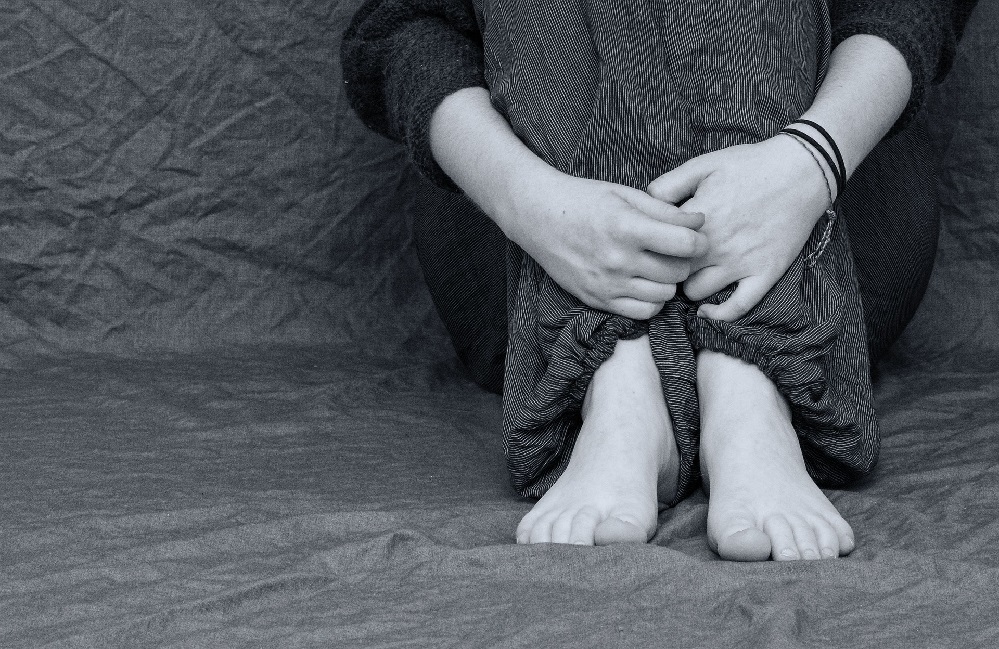Women’s rights groups have launched legal proceedings against the Crown Prosecution Service (CPS) accusing it of failing to protect their human rights with regards to how it decides whether to pursue rape cases or not.
A woman raped at knifepoint by her boyfriend whose case was dropped amid alleged CPS fears jurors would misinterpret her WhatsApp messages.
A wife repeatedly raped by her husband whose case never went to trial reportedly due to concerns the jury would not understand the dynamics of a coercive relationship.
These are just two of dozens of cases women’s rights groups, End Violence Against Women (EVAW) and the Centre for Women’s Justice (CWJ) say are being dropped due to a “covert” and unlawful change in the CPS’ decision-making policy on prosecuting rape cases.
The groups have today (June 10) launched legal proceedings against the CPS accusing it of discriminating against women and girls and failing to protect their human rights.
“We are arguing that the CPS’ systemic failure to prosecute rape is a comparable human rights failure and has a discriminatory impact on women who are the large majority of rape victims,” said Harriet Wistrich, director of the CWJ.
“The failures by the CPS to consult on changes to policy and to disregard its own guidance developed to tackle the under-prosecution of rape are, we argue, unlawful.”
The campaigners accuse CPS of deciding which cases to pursue by second-guessing jury prejudices, rather than building cases based on their “merits”.
But a CPS spokesman insisted that it pursues cases based only on whether its legal tests are met, prosecuting where there is “sufficient evidence to do so”.
What Are The Allegations Against The CPS?

Image Credit: Pixabay.
Ministry of Justice and CPS figures, revealed through a Freedom of Information request, show that rapes reported to the police have nearly tripled between 2014 and 2018 – rising by 173 percent.
While the number of accused rapists charged and sent to court has fallen by 44 percent over the same period, figures show.
For women who report rape to the police, this means they had a one in five chance of it ending up in court in 2014.
But now, when more women than ever are reporting rape, they have a less than four per cent chance of ever having their case heard in court.
Among those said to be denied justice is Rebecca (not her real name), who was in the early stages of a consensual sexual relationship when one weekend she was repeatedly raped, physically assaulted, threatened with a knife and held hostage at her home.
Police were called to the address but Rebecca was unable to speak freely and they left.
She later reported him to the police, where she discovered that he was on early release from a jail sentence relating to an assault on his previous partner.
The man was charged with three counts of rape, as well as charges of destroying property, assault by beating and false imprisonment.
But on the eve of the trial, days after embarrassing publicity for the CPS about the Liam Allen case, the prosecution informed her that they were dropping the case.
The Senior Crown Prosecutor wrote to her stating in very broad terms “Having reviewed all of the evidence the police gathered, I have decided that there is not enough to have a realistic prospect of a conviction”.
At a further meeting in February 2018 the prosecutor explained it had been decided that the credibility of Rebecca’s account had been undermined by WhatsApp messages exchanged with the perpetrator during the relevant time-period which might be interpreted as being amicable or encouraging sex.
But Rebecca said she sent the messages to the perpetrator while in another room, hoping to pacify him while considering how to escape and call others for help.
EVAW say that these figures, coupled with numerous stories like Rebeccas, indicate a secret CPS policy or practice of moving away from a ‘merits-based approach’ on pursuing prosecutions towards second guessing jury’s prejudices.
What About Equalities And Human Rights Law?

Image Credit: Flickr.
Public sector bodies such as the police and the CPS have a “public sector duty” under the Equality Act 2010 to eliminate discrimination, harassment and other proscribed conduct towards people on the basis of “protected characteristics” – such as their age and gender.
The CPS used to operate on a “merits-based approach”, Ms Rachel Krys, co-director of EVAW told RightsInfo, whereby it would build cases based on their the own strengths.
She said: “Prosecutors were encouraged to ignore rape myths and commonly held prejudices about rape victims and concentrate instead on the evidence in the case.
Ms Krys also told RightsInfo that Article 3 and 14 of the Convention of Human Rights – which protect against inhuman and degrading treatment as well as discrimination – are instrumental.
“Article 3 places a positive obligation on state authorities to conduct an effective investigation into acts of third parties of serious offences such as rape,” she said.
She highlighted how this has resulted in the 2014 High Court ruling in which police were found in breach of the Human Rights Convention for failing to investigate allegations effectively against serial rapist John Worboys.
Rape prosecutions disproportionately affect women and people with disabilities, Ms Krys said, and so the impact of the CPS’ alleged policy breached Article 14.
EVAW seeks an immediate re-instatement of the merits-based approach and the guidance and training associated with this.
They also seek re-consideration of all non-final prosecutorial decisions taken under the new policy/change of approach in 2017 and a review of any prosecutorial decisions that were final, as well as publication of any recommendations from that review.
Donations are accepted for the campaigners legal costs at CrowdJustice.
What Does The CPS Say?
A CPS spokesman said: “Sexual offences are some of the most complex cases we prosecute and we train our prosecutors to understand victim vulnerabilities and the impact of rape, as well as consent, myths and stereotypes.
“Decisions as to whether or not to prosecute are based on whether our legal tests are met – no other reason – and we always seek to prosecute where there is sufficient evidence to do so.”







